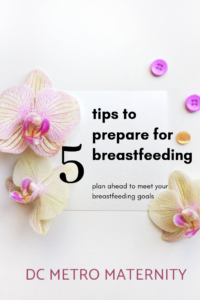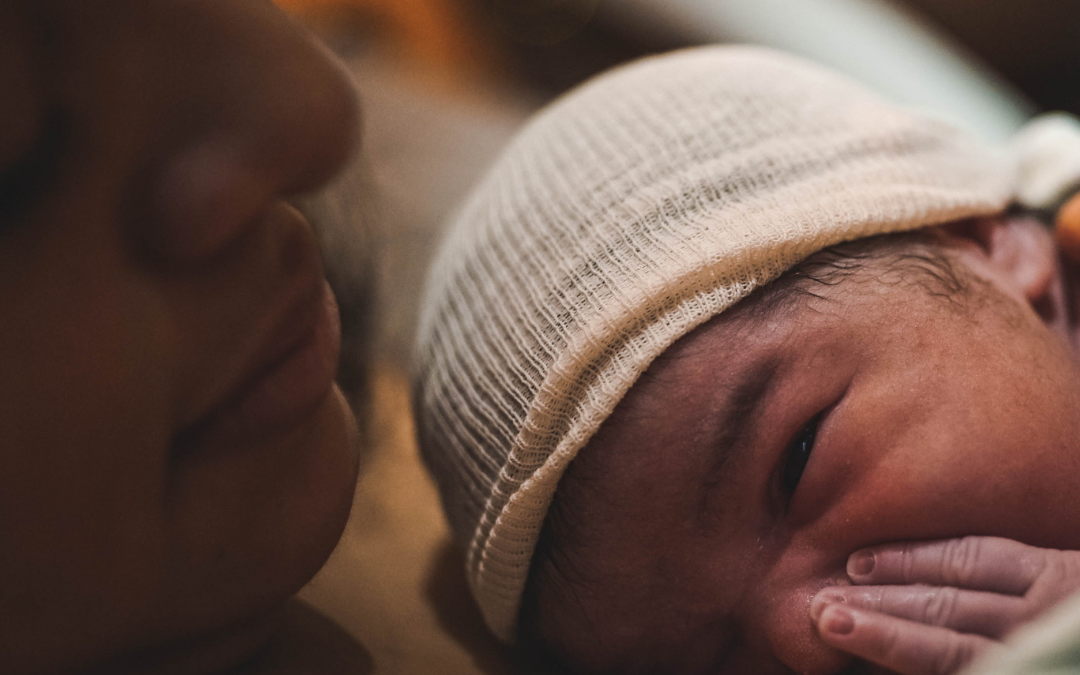The idea that you need to prepare to breastfeed might surprise you.
Maybe you thought “Hey, I’m a person with boobs” (or chest tissue with mammary glands, depending on how you identify). “I’m having a baby, and breastfeeding is natural. I’ll be able to do this, no sweat.”
Breastfeeding and chestfeeding are natural. But I like to say that it’s natural like walking, not breathing.
Babies have to learn to walk. As a matter of fact, most of them spend the better part of a year developing the necessary muscle strength and coordination in order to take those first wobbly steps.
It won’t take you that long to learn to breastfeed, but you and your baby (or babies) have to figure it out together.
Now, it wasn’t always this way. Once upon a time, breastfeeding was just the way things were done. We all grew up familiar with it, because families were big, and nursing was the only way to consistently feed an infant.
I’ll spare you the history of how that changed but suffice it to say that for a couple of generations, lots of families in the US only used formula. (Formula is a wonderful invention. It saves lives and sanity and we support it’s use! It also shouldn’t be our only option.)
We recently asked on DC Metro Maternity’s facebook page, and a number of former clients and friends of the page were the first in their family to breastfeed in at least a couple of generations.
Unfortunately, because we lost the family knowledge of nursing, it often takes a bit of effort to get started.
But lucky you! You’re one of the brilliant souls who’s somehow found their way to a doula website, and you’re making plans ahead of time.
So let me tell you how to prepare to breastfeed:
1. Figure out what your breastfeeding goals are.
You’re not a robot, and you get to choose what’s important to you. Would you like to nurse for two years? Nurse for the two months you have of maternity leave and then pump? Exclusively pump from the beginning? Do you want to use only breastmilk, or combine breastmilk with formula?
Set your own intentions and know that you’re in charge of your family and you’ll make the right decision.

2. Know your health history related to breastfeeding.
While most bodies that grow babies are able to provide milk for them, some of our clients are worried about if they’ll be able to breastfeed and make milk. If you have had a breast reduction surgery, polycystic ovarian syndrome, diabetes or a history of infertility, it’s worth talking to an IBCLC.
3. Find breastfeeding support and education.
You shouldn’t try to learn this skill alone. That’s a recipe for frustration, and There are multiple ways to do this.
- You can take a class (we offer one, and will bring it directly to your home in DC, MD and VA.)
- If you have friends and family members who’ve breastfed, talk to them.
- Look into local support groups. Your hospital likely has one, as does the Breastfeeding Center, and there are several others.
- Find out what your hospital offers on the labor and delivery and postpartum units. Are there lactation educators? Are they IBCLCs?
- Talk to your OBGYN and baby’s pediatrician. They may have an IBCLC on staff, or that they’re affiliated with.
- Reach out to your doula, who may have taken training in lactation and/or infant feeding. We have lactation consultants that we refer to in the DC metro area.
4. Prepare your partner, older kids and family.
Support from loved ones is one of the major keys to breastfeeding success. And partners are more than just glorified snack bringers (although snacks are important.)
You’ll want someone around to handle things other than feeding the baby, like make sure that the older kids are getting the attention they need, and ensuring that there’s food in the house. Your partner can also remember the positioning tips that your postpartum doula or lactation consultant showed you, or even take notes.
Some days, you’ll need someone to scratch your nose or put a blanket over your feet if your hands are full of baby head and boob while you learn to breastfeed.
And if things are challenging as you learn to breastfeed, you’ll want someone to tell you that you’re an amazing goddess making food with your body and keeping someone alive. You can do no wrong!
Now, not all partners are down for these things (though I’m sure they have other strengths. If you think you need someone to fill this role, seriously just call us and we’ll doula you.)
5. Get your house (or apartment) in order.
(Shout out to you if you’re a little bit churchy, and said “do it todaaaaaaay. You get me.)
When we write infant feeding plans and our clients are breastfeeding for the first time, I help them come up with a checklist of what they’ll need to meet their breastfeeding goals.
It can be simple to prepare to breastfeed, such as buying comfy bras without underwire, having a supportive chair and some pillows. Or it can be more elaborate, including a pumping station, a breastfeeding station complete with snack provisions and nursing pillows.
Regardless, consider what you’ll need, and get it before there’s a screaming infant in the house. If you need a consult to figure out what that is, give us a call.
This list is just to help you start as you prepare to breastfeed. There’s more that you’ll learn along the way.
Any good breastfeeding class you take will teach you about breastfeeding positions, how to know if your latch is working for you, and how to know if your baby is getting enough to eat. And there are things you’ll only know once you’re in your breastfeeding relationship with your baby.
If you’re wanting to start preparing in a personalized way, give us a shout, and our postpartum and infant care doulas, or infant feeding specialists will be happy to support you.
While preparing for breastfeeding you may want to prepare for childbirth as well, sign up for our live childbirth classes here.


